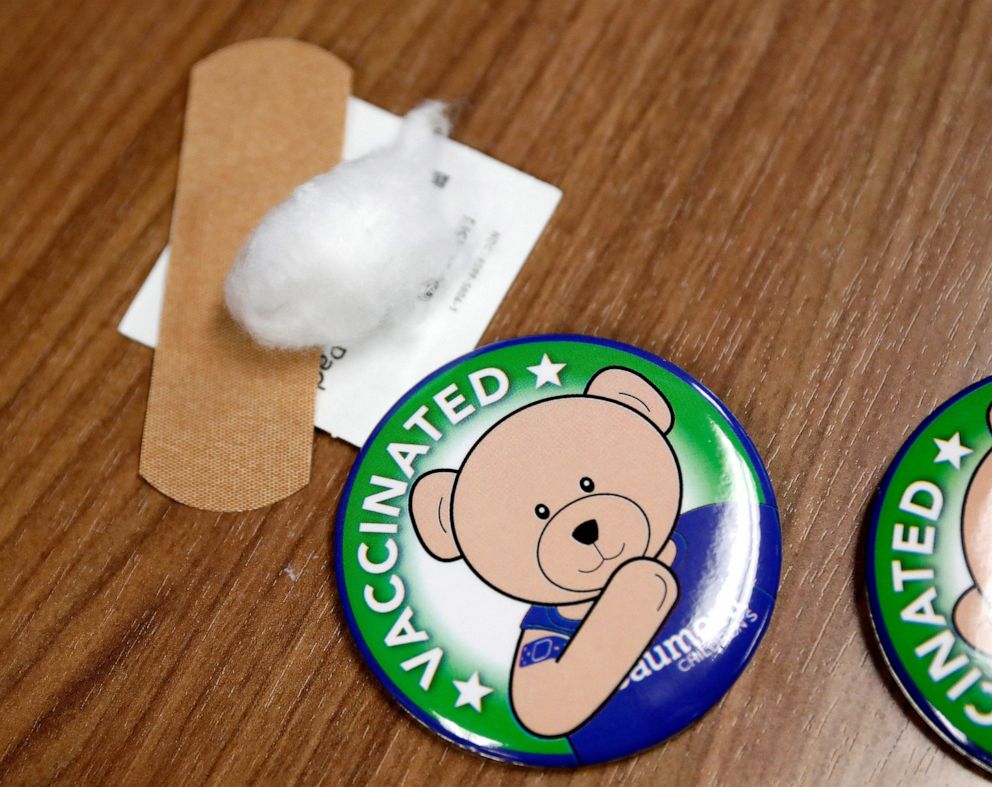FDA postpones review of Pfizer data on vaccine for kids under 5
The Food and Drug Administration on Friday postponed its review of Pfizer’s COVID-19 vaccine for kids under 5.
“We realized now, in data that came in very rapidly because of the large number of cases of Omicron, that at this time, it makes sense for us to wait until we have the data from the evaluation of a third dose before taking action,” Dr. Peter Marks, the FDA’s vaccine chief, told reporters.
Marks acknowledged the change was “late breaking” — the FDA’s committee of independent advisors was scheduled to review and vote on authorizing the vaccine next Tuesday — but said the job of the FDA was to “adjust” to new data amid an unpredictable virus.
Pfizer applied for an emergency use authorization for its vaccine for kids ages 6 months to 4 years nearly two weeks ago. Studies on a three-shot regimen continue, which Pfizer ultimately expects will be the most effective dosage for the youngest age group.
The shot for kids under 5 is about one-tenth the dose for adults.
Submitting the data on a rolling basis was intended to get young children started on their vaccinations sooner in the face of the omicron variant and any potential new variants that arise.
But Pfizer said omicron advanced the study “at a rapid pace” and it was now going to wait for the three-dose data that “may provide a higher level of protection in this age group.”
“This is also supported by recent observations of three dose booster data in several other age groups that seems to meaningfully augment neutralizing antibody levels and real world vaccine protection for omicron compared to the two-dose regimen,” Pfizer said in a press release, referring to the heightened protection booster shots have shown to give.
Marks said the FDA needed to see the full data on three doses before it could proceed and he couldn’t comment on the specifics.
“The data that we saw made us realize that we needed to see data from a third dose ... to make the determination that we could proceed with doing an authorization,” Marks said.
Pfizer predicts it will be able to submit data on the third dose by early April. Marks, in the briefing, also said it would be about two months before there is more movement from the FDA.

“For the next two months, while the additional data are gathered, parents will have to rely on what they’ve come to do well, which is they're using masking procedures, and they are making sure that they're vaccinated and taking those types of precautions with their youngest children,” Marks said.
He went on, “We will do our part obviously, to move as fast as we can when we have the data, but for now we'll have to ask parents to help to continue to do what they've been doing.”
He also sought to reassure parents and their children that this postponement was a sign that the scientific process was working.
Pfizer may have only recently informed the FDA of this new data because it takes time to review clinical studies run by an independent monitoring board.
The latest omicron surge hit children harder than previous variants largely because of their unvaccinated status.




